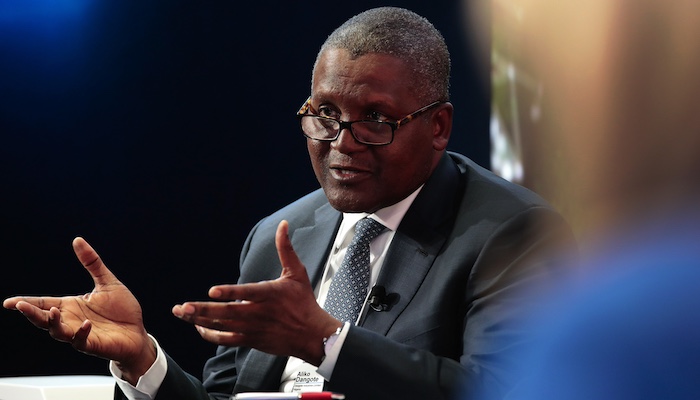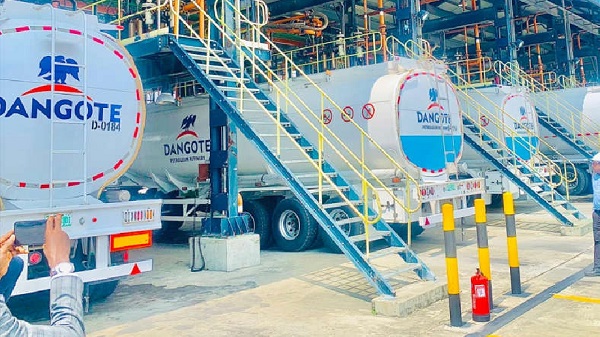Business
Back in my days at FUTO, I had an Ericson phone sold to me by Chidi Justice Onyekwere. It was a reigning phone then with a big screen and stylus. In fact, it was a status symbol then. Chidomere Ndubuisi

I used to wear it on my waist with a phone pack and would do shakara with it because the value was so high. I would always bring it out to write notes just to show it off.
But fast forward over twenty years later, that most valuable phone then hasn’t changed, but the world it exists in has changed.
It’s unbelievable how what was perceived as highly valuable yesterday can become almost obsolete today with the simple introduction of newer, better, more attractive, and functionally superior alternatives.
This is a lesson for most businesses to continually evolve to keep up with changes because what works today might not be relevant tomorrow, and staying updated with industry trends is very important.
Businesses that consistently explore new ideas and technologies are more likely to stay ahead of the competition and improve their value in the marketplace.
You will still see how some businesses cling to traditional methods, only paying attention to physical shops even as the world shifts dramatically towards digital platforms.
We had a paid class yesterday about social media monetisation. Many thought it would only be about Facebook monetisation, but it was beyond. You missed a lot if you were not part of the class.
Social media has made a fundamental shift in the business world in how people communicate, gather information, and make purchasing decisions. It’s now the bustling street of today’s business environment.
If your business is not on social media – SORRY FOR YOU. Presently, that is where the conversations are happening, and decisions are influenced.
Maybe we can have the class again to share how your business can get more reach and visibility, improve customer engagement and have cost-effective marketing while building brand personality and trust.
I am the Billionaire Mechanic preaching the business gospel.
***
Follow the Billionaire for more insightful tips and lessons Chidomere Ndubuisi (page) Chidomere Ndubuisi (profile)
Business
Dangote demands probe of NMDPRA Chief over alleged economic sabotage

President and Chief Executive Officer of Dangote Industries Limited, Aliko Dangote, has urged the Federal Government to investigate and prosecute the Chief Executive Officer of the Nigerian Midstream and Downstream Petroleum Regulatory Authority, NMDPRA, Engr. Farouk Ahmed, over allegations of economic sabotage and actions he claims are undermining domestic refining in Nigeria.
Dangote made the call while addressing journalists at the Dangote Petroleum Refinery, where he accused the leadership of the NMDPRA of working in concert with international oil traders and fuel importers to frustrate local refining efforts.
He alleged that the continuous approval of import licenses for petroleum products was deliberately weakening Nigeria’s refining capacity.
The industrialist also claimed that the NMDPRA chief was living beyond his legitimate income, further raising concerns about the integrity of regulatory oversight in the downstream petroleum sector.
Despite his criticisms, Dangote reassured Nigerians that petrol prices would continue to decline, announcing that the pump price of Premium Motor Spirit, PMS, would not exceed N740 per liter from Tuesday, beginning in Lagos.
He explained that the reduction follows the refinery’s decision to cut its gantry price to N699 per litre, with MRS filling stations expected to be the first to reflect the new pricing.
Dangote expressed deep concern over the structure of Nigeria’s downstream petroleum industry, warning that the country’s continued dependence on imported fuel was stifling local production and discouraging investment in domestic refining.
He revealed that import licenses amounting to about 7.5 billion liters of PMS had reportedly been approved for the first quarter of 2026, despite the existence of substantial local refining capacity.
According to him, the policy environment has placed modular refineries under severe pressure, pushing many to the verge of collapse.
“I am not asking for his removal, but for a transparent investigation. He should be made to explain his actions and prove that his office has not been compromised.
“What we are witnessing amounts to economic sabotage,” Dangote said, adding that agencies such as the Code of Conduct Bureau could be tasked with conducting the probe.
He further described the downstream sector as being dominated by powerful interests that profit from fuel imports at the expense of national development.
Dangote lamented that many African countries, including Nigeria, continue to rely on imported refined products despite longstanding calls for value addition and local refining.
According to him, the volume of fuel imports being permitted into the country is unethical and undermines Nigeria’s economic interests.
Dangote stressed the importance of clearly separating regulatory responsibilities from commercial activities, warning that allowing traders to influence regulatory decisions would erode confidence in the sector.
“The downstream industry must not be sacrificed to personal interests. A trader should never act as a regulator. Dozens of licences have been issued, yet no new refineries are emerging because the operating environment is hostile,” he said.
He maintained that Nigerians stand to benefit significantly from local refining, even as fuel importers bear losses.
Dangote reaffirmed his commitment to ensuring that citizens enjoy the full benefits of domestic refining, noting that the company is working tirelessly to ensure that recent gantry price reductions translate to lower pump prices nationwide.
From Tuesday, he said, MRS filling stations in Lagos would commence the sale of PMS at prices not exceeding N740 per litre.
He also disclosed that the refinery has reduced its minimum purchase requirement from two million litres to 500,000 litres, enabling more marketers, including members of the Independent Petroleum Marketers Association of Nigeria, IPMAN, to access products directly.
“So, any marketer coming to the refinery today can lift PMS at N699 per litre,” Dangote added.
Business
BREAKING: Dangote Refinery Announces Massive Reduction in Petrol Price

The Dangote Refinery has significantly slashed its ex-depot petrol price in a strategic move to gain a competitive edge over the Nigerian National Petroleum Company Limited (NNPC) and other petroleum marketers across the country.
According to DAILY POST checks on Petroleumpriceng on Friday morning, the refinery’s ex-depot price has dropped to N699 per litre, down from N828 per litre. This reflects a reduction of N129, representing 15.58%.
This latest review marks the 20th price adjustment by the refinery this year and comes just weeks before the busy Yuletide season.
The reduction also follows recent price cuts by the NNPC and independent filling stations, which have lowered pump prices at least twice in the last three weeks, bringing the retail cost of petrol to between N915 and N937 per litre in Abuja.
Business
Fraudster Arrested For ID Theft Offers Victim N10Million To ‘Sell Her BVN’ In Osun

Authorities in Osun State have uncovered a major identity-theft ring after fraudsters, accused of stealing the BVN and NIN of local businesswoman Mrs. Fadahunsi Janet Gbemisola, allegedly tried to bribe her to “overlook” the compromise of her BVN.
The case has raised serious concerns over banking security, police integrity, and a nationwide data breach involving more than 150 Nigerians.
Mrs. Fadahunsi, who spoke to SaharaReporters on Monday, said the ordeal began on November 28, 2024, when she lost her phone in transit. The device contained her OPay and Palmpay SIM cards.
“I tried calling the phone, but it wasn’t picked,” she recalled. “By the following morning, it had been switched off, so I reported the matter to the police.”
Days later, she was locked out of her OPay account. According to her, Opay officials informed her that the breach originated from MoniePoint Microfinance Bank, even though she had never opened an account with the institution.
When she visited MoniePoint, staff presented her with an account profile, 8028946149, bearing her full name, BVN, NIN, and photograph. The only mismatched details were the address and phone number used to open the account.
“The officer told me I cannot deny the account because my picture and name were there,” she said. “I was shocked because I had never opened any MoniePoint account in my life.”
She later obtained a court order from the Chief Magistrate Court, Ejigbo (MEJ/M4/25) directing MoniePoint, GTBank, Opay, and Palmpay to lift restrictions placed on her BVN. Despite serving all institutions, she said MoniePoint denied ownership of the same account.
Frustrated, she went to the Central Bank of Nigeria (CBN) in Osogbo, where officials reviewed MoniePoint’s submission and confirmed that her BVN and NIN had indeed been used to open the fraudulent account.
“They showed me the form. My picture was there, my BVN was there, my NIN was there,” she said. “But the address and signature were not mine.”
According to her, CBN officials told her plainly that “until you find the person who used your identity, you cannot defend yourself.”
Confronted with the daunting task of tracking down the fraudster and with funds received from family members to bury a loved one frozen in her accounts, she sought help from the police.
Following a petition at the State Criminal Investigation Department in Osogbo, investigators traced the suspect, identified as Calistus Obi, to the Lagos–Ogun border and arrested him on March 28, 2025.
During investigation, the Police Monitoring Unit at Osogbo were able to recover from the suspect “67 SIM cards, multiple phones and evidence of over 150 identities, including BVN and NIN records, allegedly used to open MoniePoint accounts for their international syndicated fraudsters were discovered.”
During interrogation before the Osun State Commissioner of Police, Mrs. Fadahunsi said the suspect admitted he was working with a man called “Mike” based in China.
“He told the CP that he sends the MoniePoint accounts to the man in China and gets a percentage,” she narrated. “The CP asked him, ‘So you have sold Nigerian people to China because of money?’”
After his arrest, the suspect’s associates allegedly approached both the police and the victim with cash offers to bury the case.
“They called me and said I should say how much I want to forget my BVN,” Mrs. Fadahunsi said. “They offered up to ₦10 million. I refused.”
She also said an influential figure from Lagos contacted the police monitoring unit handling the case and asked them to collect ₦500,000 to release the suspect, but the officers declined.
Lamenting fraudsters in the Nigeria Police Force, she explained that shortly after rejecting the bribe, senior officers from Abuja ordered the Osun State Command to transferred the case to Force Headquarters with immediate effects.
“Unfortunately, the case file was transferred to Force Headquarters Cybercrime unit. When I got to Abuja, they told me the suspect had been released on bail,” she said.
“They suddenly claimed he was not the person who opened the MoniePoint account.”
Her new IPO reportedly told Mrs. Fadahunsi that “until we find the real person, you cannot use your BVN.”
She said investigators in Abuja dismissed the earlier evidence that linked the suspect directly to the phone number used to open the fraudulent MoniePoint account.
According to Mrs. Fadahunsi, attempts by her lawyer to follow up with police in Abuja were met with hostility.
“The IPO told my lawyer, ‘You said you want to write petition against me; go and write it,’ and he dropped the call,” she said.
She added that the released suspect later visited Osun CID, attempting to reclaim his confiscated SIM cards and phones, though Osun officers refused as at the last time she visited.
Months after court orders, petitions, and repeated visits to police and regulators, Mrs. Fadahunsi’s BVN remains blocked. Her GTBank, Opay, and Palmpay accounts are inaccessible.
“I cannot do business. I cannot even open another account,” she said. “My whole life is on hold.”
Growing Concern Over National Data Breach
The case has raised alarms about a massive BVN and NIN breach used to create fraudulent MoniePoint accounts allegedly used to receive funds from across the world.
With at least 150 Nigerians’ identities compromised, the incident signals a potential national security threat.
“This is not just my problem,” she said. “It means anyone in Nigeria can lose their identity and the system will blame them.”
When SaharaReporters contacted the Osun State Command’s spokesperson, DSP Abiodun Ojelabi Zechariah, he said he was not aware of the case but requested for the copy of the petition of the woman.
-
Business1 year ago
US court acquits Air Peace boss, slams Mayfield $4000 fine
-

 Trending1 year ago
Trending1 year agoNYA demands release of ‘abducted’ Imo chairman, preaches good governance
-

 Politics1 year ago
Politics1 year agoMexico’s new president causes concern just weeks before the US elections
-

 Politics1 year ago
Politics1 year agoPutin invites 20 world leaders
-

 Politics1 year ago
Politics1 year agoRussia bans imports of agro-products from Kazakhstan after refusal to join BRICS
-
Entertainment1 year ago
Bobrisky falls ill in police custody, rushed to hospital
-
Entertainment1 year ago
Bobrisky transferred from Immigration to FCID, spends night behind bars
-
Education1 year ago
GOVERNOR FUBARA APPOINTS COUNCIL MEMBERS FOR KEN SARO-WIWA POLYTECHNIC BORI




